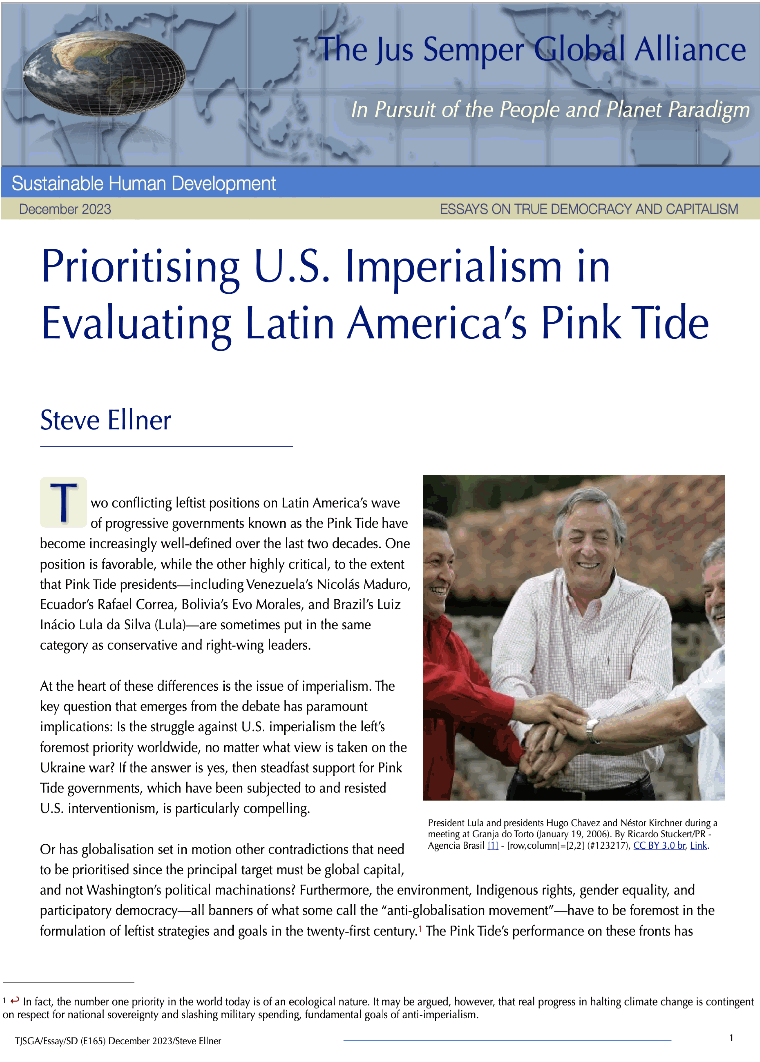Evaluating Latin America’s Pink Tide Steve Ellner At the heart of these differences is the issue of imperialism. The key question that emerges from the debate has paramount implications: Is the struggle against U.S. imperialism the left’s foremost priority worldwide, no matter what view is taken on the Ukraine war? If the answer is yes, then steadfast support for Pink Tide governments, which have been subjected to and resisted U.S. interventionism, is particularly compelling. Or has globalisation set in motion other contradictions that needto be prioritised since the principal target must be global capital, and not Washington’s political machinations? Furthermore, the environment, Indigenous rights, gender equality, and participatory democracy—all banners of what some call the “anti-globalisation movement”—have to be foremost in the formulation of leftist strategies and goals in the twenty-first century.1 The Pink Tide’s performance on these fronts has been far from exemplary, thus explaining the line of reasoning of those on the left staunchly critical of those governments. For a full review of this essay, click here or on the picture to download the pdf file.
|
- © The Jus Semper Global Alliance

| Home |  | Resources |  | Democracy Best Practices |  | Prioritising U.S. Imperialism in Evaluating Latin America’s Pink Tide |


